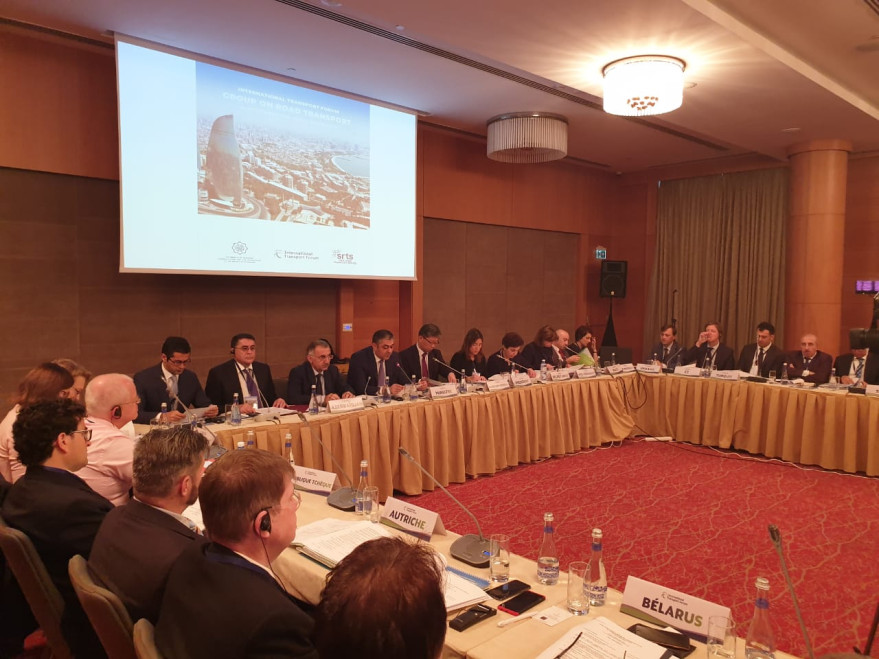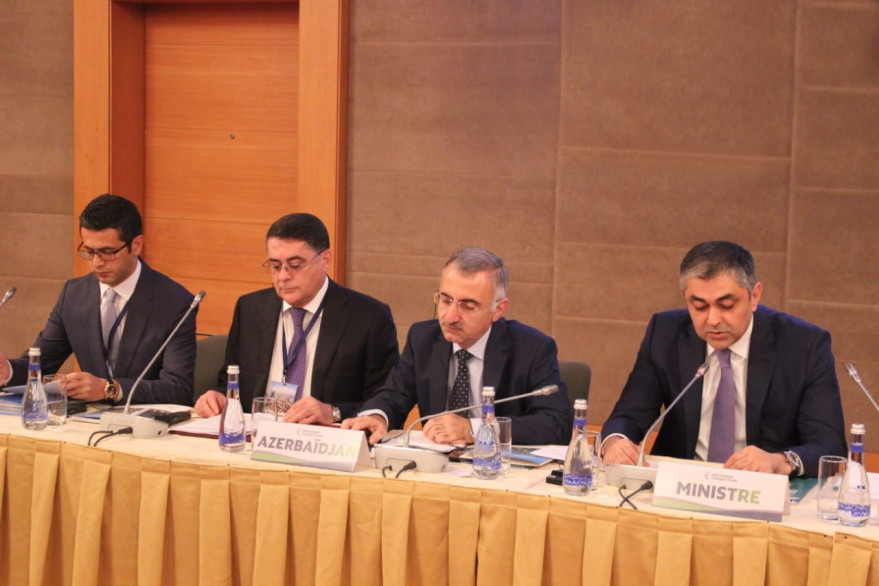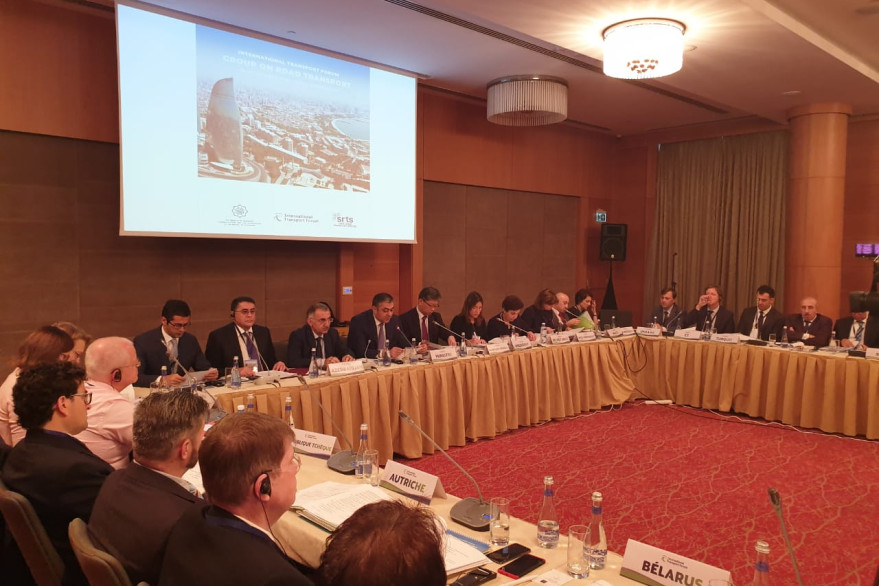Baku hosts regular meeting of ITF Road Transport Group

The regular meeting of the Road Transport Group of International Transport Forum (ITF) has begun today in Baku.
The two-day meeting is being attended by some 100 representatives of ITF member countries. The sessions will discuss issues such as the status of implementation in the member countries of the requirements set forth in the Quality Charter, key projects for the further development of international road transport, research and prospects for the development of the European freight transport market, as well as decisions of meetings held prior to the Baku session.
Delivering a keynote speech at the event, Minister of Transport, Communications and High Technologies Ramin Guluzade said that under the leadership of President Ilham Aliyev all sectors of the country’s economy are developing dynamically, activities in the transport sector, including in the field of road transport are expanding.
“It is no coincidence that the Republic of Azerbaijan today is widely involved in international cooperation as a reliable partner and is actively involved in the implementation of a number of large-scale regional transport projects. Thanks to the development of the transport sector, our country is becoming the largest transit, logistics center and important transport hub in the region. The international transport corridors passing through the territory of the Republic of Azerbaijan have been completely reconstructed and brought into line with the European standards,” the Minister emphasized.
In his speech, Ramin Guluzade informed in detail about the work done in the field of regulation of international road transport.
The Minister also spoke about the implementation of the requirements of the Quality Charter and activities envisaged in the Action Plans.
Then, head of the State Road Transport Service Habib Hasanov made a presentation on the situation regarding the implementation of the requirements of the Quality Charter.
It should be emphasized that on August 28, 2019, President of the Republic of Azerbaijan Ilham Aliyev signed an important decree on amendments to the Law of the Republic of Azerbaijan “On Road Transport”. The decree prescribes to bring the enforcement mechanism in the implementation of international passenger and freight transport by road in accordance with the requirements of the Quality Charter. The signing of this historic decree on the application of international experience in the field of road transport is the most striking example of Azerbaijan’s compliance with international norms in anticipation of the annual Baku session of the International Transport Forum, which is the largest platform for leading international carriers and a global platform for dialogue on transport policy.
It is to be recalled that the International Transport Forum has 57 members. The Republic of Azerbaijan has been a full member of this forum since May 1998.
The main objectives of the International Transport Forum are: determination of measures for the efficient use and effective development of international transport by the member states of the forum, coordination and strengthening of the activities of all international carriers, taking into account the activities of national authorities in the field of international transport.
A Quality Charter, adopted at the next summit in Leipzig (Germany) on May 26, 2015, implies the introduction of uniform requirements for road carriers (legal entities or individual entrepreneurs), their responsible persons and drivers engaged in international transportation on the basis of multilateral permits established by the ITF member countries.
The Quality Charter ensures compliance with the working and resting time rules of transport personnel involved in international road transport, increases the level of knowledge and professionalism of responsible persons and drivers of transport enterprises, and also improves the rules for admission of legal entities and individuals and their responsible persons to international transport, as well as the implementation of control - administrative practice for violation of uniform requirements.


